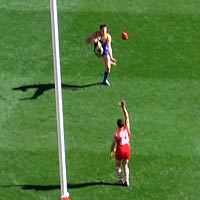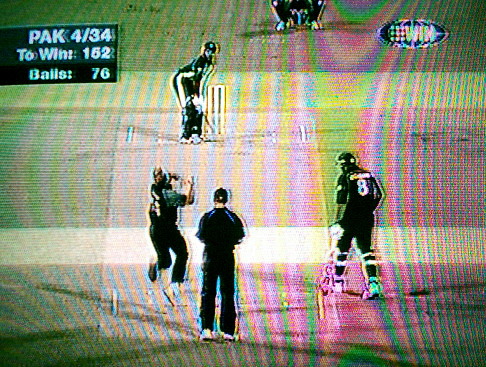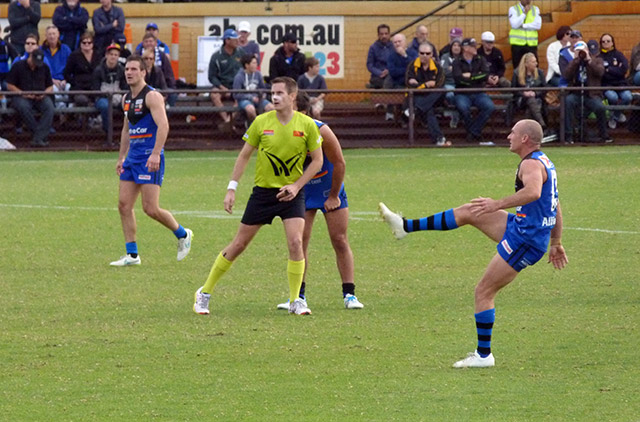I have previously discussed whether soccer should have a video referee and after being at an AFL game last night I believe there is a good argument for using video or other technology to adjudicate close goal-line decisions in AFL too.
Not far from me I saw two incidents where it was a close call whether the ball actually crossed the goal line, and from my position, the umpire did not seem to get it right. I have not had the opportunity to see a reply which was surely shown to the home viewers of the match.
If the TV viewers can get to see a slow-motion reply of such situations immediately after the fact, why can’t they refer close calls to an off-field umpire who can watch the same video and then refer their decision back to the field umpires? Rugby union has had such a system for a while now, and international cricket and tennis matches are also using a referral system. It is time for the AFL to join the other major sports.
There are already nine umpires on the field in AFL matches: three field umpires, four boundary umpires, and two goal umpires. There is an emergency umpire, who is the tenth. He is currently there as a possible replacement if needed, and is also responsible for monitoring behind-the-play incidents. It would not be too much to ask this umpire to also be responsible for reviewing the video replays when they arise. I have a personal reason for these views – last night my team the Blues lost by 3 points and are out of the finals, if only a video referee system was in place the result may have been different.
Related Pages: About AFL, Technology in Sports







